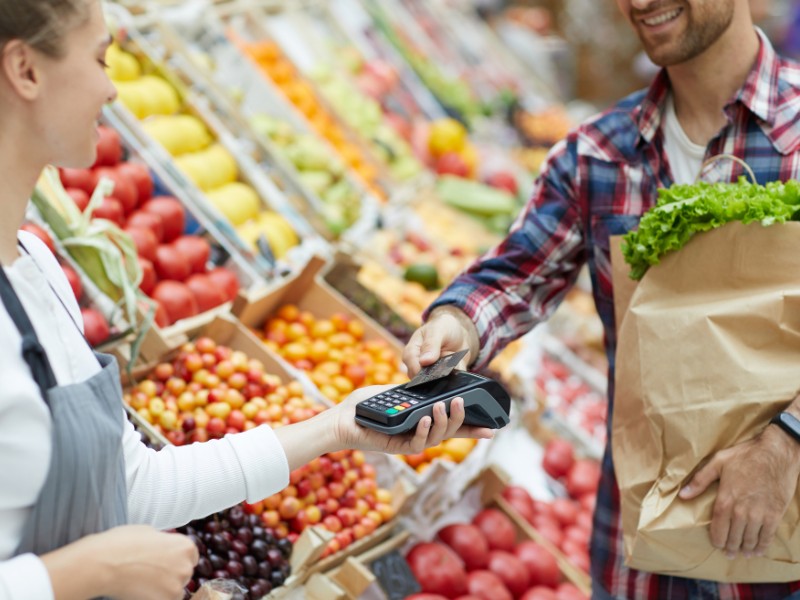12 Ways to Save Money on Food and Drink

This post may contain affiliate links. At no cost to you, we earn a commission from qualifying purchases.
They say that man (or woman) cannot live by bread alone but we can also be a bit frugal when it comes to comes to using what we have without unnecessary trips to the supermarket and feeding the garbage bin! It’s scary how much food we throw away and just how much that food actually costs! Planning and consideration are the key points in this section – thinking before you buy and buying to a plan will help reduce your food waste and reduce your costs!
1. Try to trim
If, for example you usually spend around £60 on your weekly food bill, try to cut it down by £20. It doesn’t actually sound much but if you calculate that over a whole year you can save yourself a whopping £240 – enough for a short holiday or a blow out at Christmas.
2. Write a list and plan your meals
Write out your shopping list for the week ahead, that way you know what products you will actually need to buy. If you don’t take a list to the store you will end up putting non-essential items in your shopping basket which you don’t actually need and haven’t budgeted for.
3. Weigh up the details
Look closely at the price per kilogram/lb/grams of loose vegetables as you will more often than not find that it is much cheaper to buy loose vegetables rather than the pre-packed vegetables. In most cases, buying in bulk will translate into a reduction too. Also, buying loose veggies rather than in plastic wrapping will help save on the environment too.
4. Try supermarket ‘own’ brands
Think twice when you have a famous brand of food in one hand and the store’s discount own brand in the other hand, you will notice a big price difference between them, but not that much difference in taste or quality. Remember the power of marketing and that often, perception of ‘quality’ is just what the marketing men want you to believe.
5. Buy ‘marked down’ food
When out shopping you should always try to visit the ‘Reduced for Quick Sale’ area in the supermarket first as there may be ingredients here which are reduced considerably and may be on your shopping list to use that day or the following day – especially vegetables and fruit. If you manage to grab yourself a bargain, check if the item can be frozen or not, you can then defrost it at a later date but be sure to eat it once it is defrosted.
6. Coupons
Always be on the lookout for voucher and money-off coupons. These can be found in various places such newspapers, websites and flyers through the door etc. Even if you don’t actually need the product that particular week you are doing your shopping, keep it to one side for when you do require the item. Get yourself a small folder to keep any offers you find and if you’re super organised put them into monthly expiry dates that way you won’t miss out on using them up.
7. Ingredient sharing
When planning your menu for the week, pick recipes that share a common ingredient. If you also prepare food in larger quantities, it will save you money in electricity / gas and time in the long term. Simply freeze anything you are not going to eat.
If you’ve not invested in one already, maybe think about getting a slow cooker, they are absolutely fantastic. You will save a fortune on energy because the food cooks very slowly over a period of hours and the taste is amazing.
8. Eat by season
Planning your menus to make use of food that is in season ensures you are not paying for food that does not need to be shipped in from another country and this can mean the costs are greatly reduced.
9. Feed the pets
Got pets? Don’t throw away waste food and instead, mix it in with your pet’s food reducing the amount of pet food you have to buy and improving the nutrition quantity of the food.
10. Joint buying power
If buying in bulk puts you off because you think you won’t be able to use so much of a specific product, consider asking your neighbours, extended family or work colleagues if they want to buy in with you. Agree a few common products and nominate someone to buy these each month to achieve a greater saving for you all.
11. Buy frozen
When you consider that most of the ‘fresh’ meat we buy has been frozen at some time along its journey to the shop, it seems odd that we as consumers are happy to spend up to 20% more for this meat because we have the notion that fresh is better. Buying frozen meat means one less defrosting cycle and will save you a lot of money in the long run if you can remember to take that joint out of the freezer the night before! Frozen vegetables can be just as good and again, they are much cheaper than buying fresh and you can use what you want and reduce unnecessary waste.
12. Make your own wine and beer
Making home-made wine is one of the easiest things you can do. As well as being easy to make, you can even use leftover ingredients like potato peel if cost is prohibitive. Simple ingredients such as raisins, rhubarb or even apples can help make delicious wines to consume yourself or give away as companion presents.





